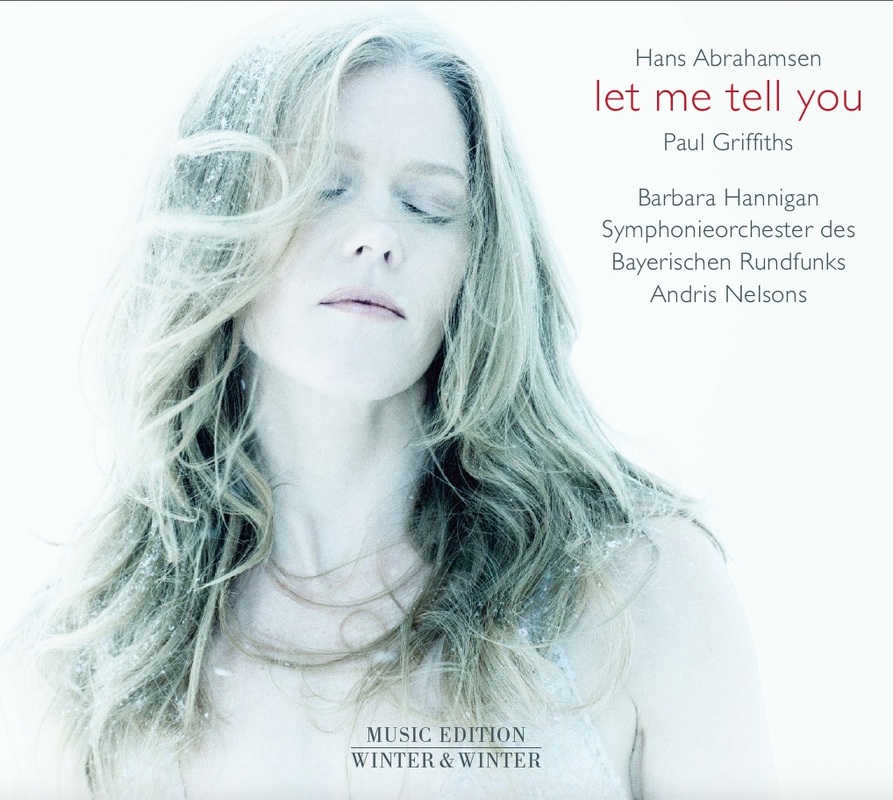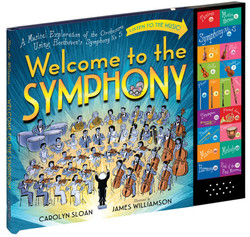The article is on the Ars Technica web site, and you can read it by clicking here.
|
In case you didn't believe me, here's an article about the resurgence of interest in cassette tapes. National Audio Company--one of the few remaining manufacturers of cassettes--saw a 31 percent increase in demand in 2015. 70 percent of that is music cassettes, with even some major artists getting in on the trend. 30 percent of the factory's output is in blank cassettes.
The article is on the Ars Technica web site, and you can read it by clicking here.
0 Comments
We've known for a while that there was a resurgence of interest in vinyl records. Now there seems to be a renewed interest in cassette tapes.
Rosecrans Baldwin writes in the New York Times here. (from a press release)
When Barbara Hannigan was asked to sing at a surprise birthday party for her friend, writer and critic Paul Griffiths, the simple request turned into an extensive collaboration with composer Hans Abrahamsen on a Berlin Philharmonic commission let me tell you, a song cycle based on text from Griffiths's experimental novella, narrated by Hamlet's Ophelia. The resulting 30-minute composition, divided into past, present, and future, is Abrahamsen's first major vocal work. It was recently awarded the prestigious 2016 Grawemeyer Award for Music Composition. Paul Griffiths also collaborated on a previous Grawemeyer Award-winning work, Tan Dun's Marco Polo. Hannigan, who has given more than 80 world premieres, sang the premiere with the Berlin Philharmonic under the direction of Andris Nelsons. A recording with Hannigan, Nelsons, and the Bavarian Radio Symphony Orchestra, will be released on January 8, 2016 on the Winter & Winter label. Hannigan also gives the U.S. premiere of let me tell you with The Cleveland Orchestra and Music Director Franz Welser-Möst, first in Cleveland, January 14-15, and then at Carnegie Hall on January 17, 2016. She then performs the song-cycle in February with the Boston Symphony Orchestra and Andris Nelsons. In addition to the world premiere, Hannigan has sung every subsequent performance, and the U.S. is the tenth country to which she brings this “virtuosic, unconventional, enigmatic, and beautiful piece,” as the Berliner Zeitung said of the premiere. let me tell you gives Ophelia the opportunity to retell her own story, using only the 481-word vocabulary given to her in Shakespeare‘s Hamlet. Griffiths says, “Ophelia is one of those imaginary figures whose existence goes on beyond the work that gave them birth. She has appeared in paintings and in novels, including the one that was the source for this piece. Now her words come back to her transformed, and she has gained, as she herself might say: The powers of music.” The piece uses microtonal tuning, rhythm that plays trick with time, and an adaptation of a technique used by Monteverdi to create, again in the words of Griffiths, music “at once familiar and strange.” It won the 2014 Royal Philharmonic Society Award for Large-Scale Composition. In addition to the recording, there will be three American performances of the work, as follows: January 14-15, 2016 Severance Hall, Cleveland The Cleveland Orchestra Franz Welser-Möst, conductor Barbara Hannigan, soprano Shostakovich: Symphony No. 4 Abrahamsen: let me tell you (U.S. Premiere) January 17, 2016 Carnegie Hall, New York The Cleveland Orchestra Franz Welser-Möst, conductor Barbara Hannigan, soprano Shostakovich: Symphony No. 4 Abrahamsen: let me tell you (New York Premiere) February 4-6, 2016 Boston Symphony Hall, Boston Boston Symphony Orchestra Andris Nelsons, conductor Barbara Hannigan, soprano Shostakovich: Suite from the incidental music to Hamlet Abrahamsen: let me tell you (Boston Premiere) Prokofiev: Suite from Romeo and Juliet They've been performing together since 1986, have made more than 20 recordings, and have sold over 2 million albums of mostly chant and early music. They are Anonymous 4, and they're calling it quits tonight. Their last concert ever will be at the Metropolitan Museum of Art in New York.
There's a link for more information here. Conductor Kurt Masur is dead at the age of 88. He passed away over the weekend due to complications from Parkinson's Disease.
Masur led the New York Philharmonic for 11 years beginning in 1991. The New York Times has a lengthy article on Masur and his career here. I received a review copy the other day of a new children's book, "Welcome the the Symphony" by Carolyn Sloan, a music educator and composer. I thought it looked interesting, so gave it a quick read. It's an introduction to symphonic music using Beethoven's 5th Symphony--probably the most well-known symphony ever written--at least as far as the opening theme. The text and illustrations guide young readers through what a symphony (by that, referring to a musical composition) and an orchestra are, and then breaks the orchestra down by section and by instrument.
The book also has a sound panel with 19 different sound samples, each referred to by number in the text--so when describing the sound of the bassoon, for example, you press the corresponding number and hear a short sample of what a bassoon sounds like. There's also a sample of what the orchestra sounds like when tuning before a performance, and the opening and closing themes of the Beethoven. I might mention that toward the end of the book there's a page by the author for adults as well, entitled "Raising a Child to Love Classical Music", and also a short bio of Beethoven. I'm all for introducing the next generation to classical music in any and every way possible, so this little volume seems like a good idea to me. Violinist Itzhak Perlman has just been awarded the 2016 Genesis Prize, which carries with it a $1 million gift.
Information about the award and the organization are here. This one in Germany. The first prize in the International Telekom Beethoven Competition in Bonn is Filippo Gorini, who (as reported by Norman Lebrecht) just happens to be a student of the chairman of the competition--who also happened to be one of the judges.
Shouldn't they have rules about that kind of thing? There's a link to the festival website here. Needless to say, they neglect to mention the relationship between the chair and the winner. You may remember that there was a bit of turmoil with the Cincinnati World Piano Competition back in the summer, when director Awadagin Pratt was fired and them almost immediately rehired. The troubles seem to be ongoing, as the competition for 2016 has been cancelled.
You'll find a local report here. |
AuthorI'm a classical radio announcer, blogger, and musician. Archives
April 2022
Categories |


 RSS Feed
RSS Feed
